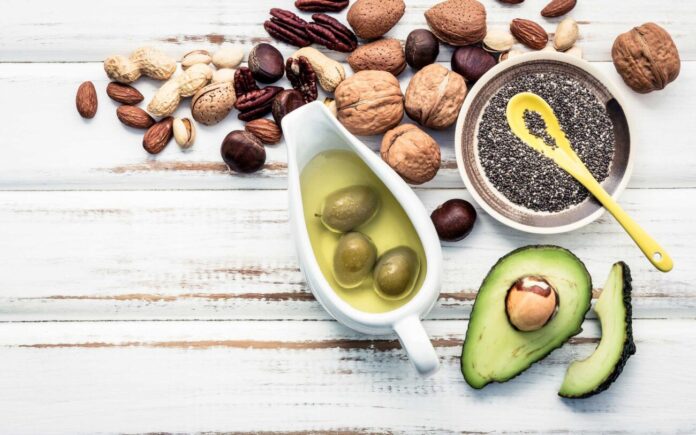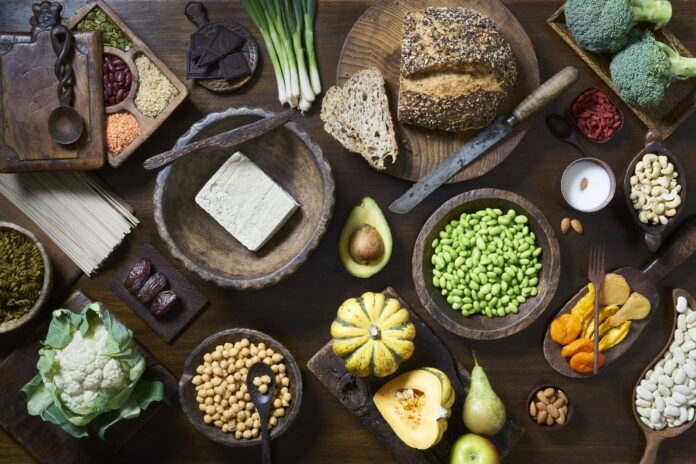A revolution in eating habits is underway, driven by a growing awareness of our impact on the environment, health, and vitality. The food on your plate can be more than just fuel for the body; it can be a tool for a sustainable and robust life. Through the lens of a plant-based lifestyle, we’ll delve into this fascinating subject. With your health in focus, allow us to guide you through the powerful benefits of plant-sourced food, and how they can elevate your life.
Incorporating Whole Grains into Your Diet
If you want to boost your well-being and live healthy, this is where it all starts. Grains form the cornerstone of numerous traditional diets around the globe. Packed with nutrients like fiber, vitamins, and minerals, whole grains, such as brown rice, quinoa, and whole wheat, act as a health-boosting fuel for the body. Whole grains aren’t merely a food; they’re a celebration of life, adding texture, flavor, and vibrancy to your meals.
It is essential to recognize that grains offer not just sustenance but also an exciting variety. Oats, barley, or millet can add new dimensions to your meals, offering diverse flavors and textures. By diversifying your grain intake, you’re not just enriching your palate; you’re optimizing your health, nourishing your body with a wide range of vital nutrients.
The Power of Fruits and Vegetables
Stepping into the world of fruits and vegetables is like embracing a rainbow of flavors and hues. This colorful array isn’t only pleasing to the eye; it offers an abundance of vitamins, minerals, and antioxidants. By consuming a wide range of produce, you’re tapping into a healing force that supports immunity, energy levels, and overall well-being.
Embracing seasonality is not only eco-friendly but also beneficial to health. Fruits and vegetables harvested in their natural season boast higher nutrient density and superior taste. The joy of eating strawberries in summer and squashes in winter connects us to nature’s rhythm, amplifying both flavor and nutritional benefits.
Healthy Fats from Plant Sources

Not all fats are created equal, and plant-based sources such as avocados, olives, and nuts provide the best kind of fats: unsaturated. These healthy lipids are champions for your heart, brain, and skin, supporting you in ways you might not have even considered. The culinary possibilities are endless, making every meal a delight for your taste buds and a gift to your health.
Incorporating these healthy fats into daily meals can be as simple as a sprinkle of flaxseeds on a salad or a drizzle of olive oil over roasted vegetables. Discovering the balance between taste and nutrition becomes a pleasurable journey rather than a daunting task. This integration fosters not just a connection to your meals but a connection to self-care and well-being.
Exploring Plant-Based Dairy Alternatives
As awareness grows, so does the selection of dairy-free options. From almond milk to cashew cheese, plant-based dairy alternatives aren’t just about avoiding animal products; they’re about opening doors to new culinary adventures. These alternatives often contain fewer additives and are gentler on digestion, making them an attractive option for many.
Navigating this dairy-free realm can become a joyful exploration rather than a sacrifice. Whether you’re baking a cake with coconut milk or sipping a latte with oat milk, the new flavors and textures bring unexpected delight. Embracing this change doesn’t mean abandoning tradition but enriching it, adding another layer to the way you experience food.
Navigating Plant-Based Snacking
Forget the guilt associated with snacking; when approached mindfully, it becomes a chance to nourish the body and soul. Plant-based snacks, whether it’s a handful of nuts or a piece of fruit, can keep you energized without causing a sugar crash. Snacking transforms from an afterthought into an intentional, fulfilling experience.
The key to effective snacking lies in tuning in to what your body truly needs. Seeking out snacks rich in fiber, protein, and healthy fats ensures that your energy levels stay steady throughout the day. With countless delicious options from hummus and veggie sticks to homemade granola bars, your snack time can become a highlight of your day.
Meal Planning and Prep Tips

Success in maintaining a plant-based lifestyle often begins with thoughtful planning. Scheduling meals, stocking up on essentials, and even pre-cooking some dishes can turn meal preparation from a chore into an enjoyable process. Your future self will thank you as you find more time and energy for the things you love.
By engaging in the preparation phase, cooking becomes an art rather than a mere task. Utilizing simple techniques like batch cooking or investing in a slow cooker can take the stress out of mealtime. Embracing preparation makes each meal a rewarding experience, nurturing both your body and your culinary creativity.
Weight Management
A diet rich in plant-based foods is not only vibrant and tasty but can also be a strong ally in weight management. High fiber content, low unhealthy fats, and balanced nutrients contribute to a sense of fullness without unnecessary calories. This approach to eating supports not just weight control but a deeper connection to mindful consumption.
The beauty of a plant-focused diet lies in its sustainability. This isn’t about a quick fix; it’s about creating a lifestyle that you can maintain and enjoy. Through balanced meals filled with vegetables, fruits, grains, and legumes, weight management becomes a natural, nourishing process rather than a struggle or deprivation.
Cardiovascular Health
Turning to plant-based foods means saying yes to heart health. Rich in fiber, antioxidants, and healthy fats, a diet dominated by plant foods helps in reducing cholesterol, blood pressure, and inflammation. This isn’t merely a diet; it’s a life-affirming choice that supports the very core of your being, your heart.
Cardiovascular well-being isn’t just about avoiding disease; it’s about thriving. By embracing plant-based options, you’re committing to a lifestyle that supports vitality, energy, and long-term wellness. Whether you’re starting this journey for yourself or your family, it’s a step towards a fulfilling, heart-centered life.
Enhancing Digestive Health with Plants

Plant foods, with their high fiber content, play a melodious tune for your digestive system. By fostering healthy gut bacteria, aiding in digestion, and preventing constipation, a diet rich in vegetables, fruits, and whole grains turns everyday eating into a digestive wellness therapy.
A happy gut is often the foundation of overall well-being. Incorporating fermented foods like sauerkraut or kimchi, along with a diversity of fibers and plant foods, builds a resilient digestive system. This isn’t merely about avoiding discomfort; it’s about creating a robust internal environment, a cornerstone of a healthy, vibrant life.
Final Thoughts
Embarking on a journey through a plant-based diet opens up avenues for vibrant health, deeper connections with food, and a sustainable relationship with our planet. It’s a celebration of flavors, textures, and colors that nourishes not only the body but the soul. By embracing the plant-rich lifestyle, you’re not just following a trend; you’re stepping into a more conscious, holistic way of living. May this guide serve as an inspiration, leading you towards a thriving life, one delicious, mindful bite at a time.




